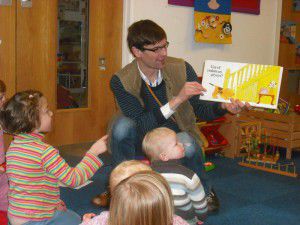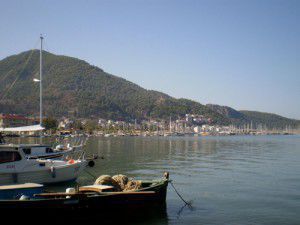What language is spoken in France?
A quick quiz question for you: what language is spoken in France?
Answer: well, French of course! But did you know France is also home to several small regional languages, including Alsatian, Catalan, Breton and Occitan?
 Like many other European countries, the French once spoke a wide range of regional languages and dialects. However, during the Third Republic, the French government made French the only official language, and outlawed use of regional languages such as Breton and Occitan in schools and institutions. The underlying idea of creating national and linguistic unity may have been well-intentioned, but as a result, most of these regional languages are now endangered.
Like many other European countries, the French once spoke a wide range of regional languages and dialects. However, during the Third Republic, the French government made French the only official language, and outlawed use of regional languages such as Breton and Occitan in schools and institutions. The underlying idea of creating national and linguistic unity may have been well-intentioned, but as a result, most of these regional languages are now endangered.
Nowadays, Occitan is spoken by around 1.33% of the population (in the Occitania region in Southern France), whilst Breton is spoken in Brittany by around 0.61% of the population. These languages are recognised by the government, but not considered official languages, and therefore given minimal support and opportunity for use.
The situation is a little more encouraging in Spain, where Basque, Catalan, Valencian and Galician are recognised as co-official regional languages, and a thriving community of native speakers exists in each of these regions.
This rather cool map shows how the areas over which each of these languages is/was spoken has changed over the last 1,000 years.
Over time, due to globalisation, mass media and government drives for national unity, the national languages in Spain, France and many other countries have established dominance and pushed smaller regional languages onto the sidelines. However, there are still communities of native speakers of each of these languages, and many people are passionate about passing on the language and culture of their region to the next generation.
Regional languages are often closely tied to the culture and identity of a region: the Catalonians I know are proud Catalan speakers, and often much of an area’s history, literature, music and so on is written in the regional language. These languages may be small, but they are certainly worth learning and preserving!
In fact, we have produced our Maths, age 3-5 and 4-6 apps in both Basque and Catalan, and uTalk is currently available in Galician, Basque and Catalan. And for anyone interested in regional French languages, why not learn a few phrases for free in Occitan, Breton, Alsatian or Provencal?
Alex
Could you repeat that, please?
Today’s guest post is from Sian, a British ex-pat living in Turkey, who has some advice for anyone considering moving abroad.
Merhaba. Last year I made a life changing decision and decided that, at the age of 42, I wanted to leave the UK and move to Turkey. After much research, a lot of visits to the vets to ensure my two elderly cats could come, and a lot of packing and sorting out, the day finally came and on April 15th this year I moved lock, stock and barrel to Fethiye (you can follow my story on my blog, To Fethiye and Beyond).
Have I regretted it? Absolutely not. Would I advise other people to give it a try? Oh yes. Is it hot? Like you wouldn’t believe. Would I suggest that they learn some of the language before they came? Definitely. Unfortunately I didn’t follow my own advice and barely learnt more than 3 or 4 words before coming out here. Luckily for me, I armed myself with a EuroTalk Turkish DVD before I left so, yes, I do know a lot more Turkish now than when I arrived – although I still sometimes struggle with the simplest of words, the main one being teşekkürler, which means thanks – for some reason I keep thinking of it as ‘testicular’ which is not going to win me any friends (well, not the right sort anyway!).
Not only is the Turkish language very hard, what with its ‘i’ with a dot that is pronounced like ‘ee’, its ‘l’ without a dot (that isn’t an L) that is pronounced like a ‘u’, its ‘c’ that is pronounced like a ‘j’, while the ‘j’ is pronounced like an ‘s’ (seriously, who thought up this language!)… but the local people here also love to practise their English. You may start with every intention of saying something in the local language but as soon as they spot you they say hello, how are you and your brain just goes to mush and you respond in English.
Mind you, something must be sinking in as I did actually manage to have a conversation in Turkish just the other day. Admittedly it wasn’t the longest of conversations but we’ve all got to start somewhere, haven’t we?

I absolutely refuse to be a parody of a Brit abroad and spend the rest of my life speaking v-e-r-y s-l-o-w-l-y in English to the locals in a slightly patronising manner so I am going to keep on going with the EuroTalk DVD and hopefully by the end of the year I’ll be able to manage an even longer conversation!
And on that note I’ll say görüşürüz and wish you all a pleasant day.
Are you moving abroad? Let us know! We’d love to help you start learning the basics of your new country’s language.
Business or pleasure – it makes no difference
In an earlier post, I talked about the importance of learning a little bit of the local language before visiting another country. Not only is it the respectful thing to do, it also saves you from embarrassing misunderstandings or spending your entire holiday communicating through pointing and exaggerated mimes.
A few years ago, I visited Lithuania for a weekend. It was for a one-off sporting event and was therefore likely to be my first and last time in the country. I didn’t need to become fluent in Lithuanian, but thought I should make an effort (particularly given where I work!) so I spent a bit of time using Talk Now before I left, learning the words for ‘yes’, ‘no’, ‘hello’, ‘thank you’, ‘hotel’, and a few others. This allowed me to greet people, explain to taxi drivers where I wanted to go, and thank the staff in restaurants and shops in their own language. It wasn’t a lot, and there was still some pointing and gesturing required, but I felt better about myself and the locals seemed to appreciate my efforts.
I recently learned the story of how the idea for EuroTalk came about. One of our founders, Dick Howeson, was on a business trip in Hungary, waiting for a flight. He desperately needed to use the bathroom, but unfortunately, instead of pictures, the airport had used the words for ‘male’ and ‘female’ on the doors. This was a small problem for Dick, who didn’t speak any Hungarian, and had no way of knowing which was which. Unluckily, the airport wasn’t very busy at the time, and he had to wait twenty minutes for someone else to come along, so he could see which door they used.
 At the time, a lot of people had been asking Dick for a language program specifically for business people, but his experience in Hungary made him realise that those travelling for work needed to start with the basics just like everyone else, rather than going straight to learning the words for ‘invoice’ or ‘contract’. That’s why EuroTalk software starts by teaching you the essential first words you need to get by – including ladies’ and gents’ toilet!
At the time, a lot of people had been asking Dick for a language program specifically for business people, but his experience in Hungary made him realise that those travelling for work needed to start with the basics just like everyone else, rather than going straight to learning the words for ‘invoice’ or ‘contract’. That’s why EuroTalk software starts by teaching you the essential first words you need to get by – including ladies’ and gents’ toilet!
Our newest iPhone app, uTalk, is based on exactly the same thinking. It’s free to download and gives you 15 words in 25 languages (with lots more on the way). And not only that, it also contains all the EuroTalk games you know and love, plus some new ones, to help you remember them. If you decide you want to learn more, there are upgrades available to unlock loads more vocabulary.
So if you’re planning your summer holiday – or a business trip – now is the perfect time to download uTalk, and wherever you go, you’ll be prepared.
Liz
Join the revival – learn Cornish
Today we have a guest post from Elizabeth Stewart, from the Cornish Language Partnership, on why Cornish is a great language to learn.
The Cornish language, or Kernewek as it is known by those who speak it, is enjoying a hugely successful revival. Those who are fortunate enough to live in the Duchy, or visit it on holiday, have only to look around them to see proof of this, with bilingual road signs springing up on street corners and businesses proudly asserting their origin by naming their products in Cornish. It’s an exciting era for the language, and learning has just become easier and more enjoyable with the release of three new EuroTalk resources in Cornish.
Cornish is a Celtic language and is most closely related to Welsh and Breton, though it also has strong links to the other Celtic languages of Irish Gaelic, Scots Gaelic and Manx. Up until the mid sixteenth century it was the main language spoken across Cornwall but pressure from English caused Cornish to decline and retreat to the far west. By the beginning of the nineteenth century Cornish had all but died out as a community language, but in 1904 Henry Jenner published a Handbook of the Cornish Language which kick started the revival of Cornish as a living, spoken language.
Since then the number of people learning and using the language has escalated, with Cornish receiving official recognition as a minority language in 2002 under the Council of Europe’s Charter for Regional or Minority Languages.

Skol Veythrin Karenza - Pre-school in Pool (photo Emilie Champliaud)
Today Cornish is one of the fastest growing languages in the world, and this is set to accelerate with more schools than ever choosing to teach Cornish, from pre-schools (including a fully bilingual one that teaches through the medium of both Cornish and English) right through to secondary schools.
Businesses are also embracing the use of Cornish. Local enterprises such as Polgoon Vineyard have made a point of choosing Cornish branding as a mark of local origin and several of their products are named in Cornish. Meanwhile national companies such as JD Wetherspoon have a policy of putting up bilingual signage in their Cornish pubs, as well as giving them names in Cornish such as “Try Dowr” (Three Rivers) in Truro and “Chapel an Gansblydhen” (Centenary Chapel) in Bodmin.
Cornish is also used in the community, with Scouts and Guides learning their motto and promise in Cornish, gig rowers naming their gigs in Cornish and an increasing number of individuals using Cornish for everything from house names to children’s names, wedding vows to tattoos.
If you would like to join the growing number of people who are taking an interest in Cornish, order your copy of either Talk More (suitable for adult beginners) or Talk the Talk (suitable for younger beginners) from EuroTalk today, or if you’ve already been learning for a while try taking your Cornish a bit further with Talk Business.
For more information about the Cornish language, visit www.magakernow.org.uk.



